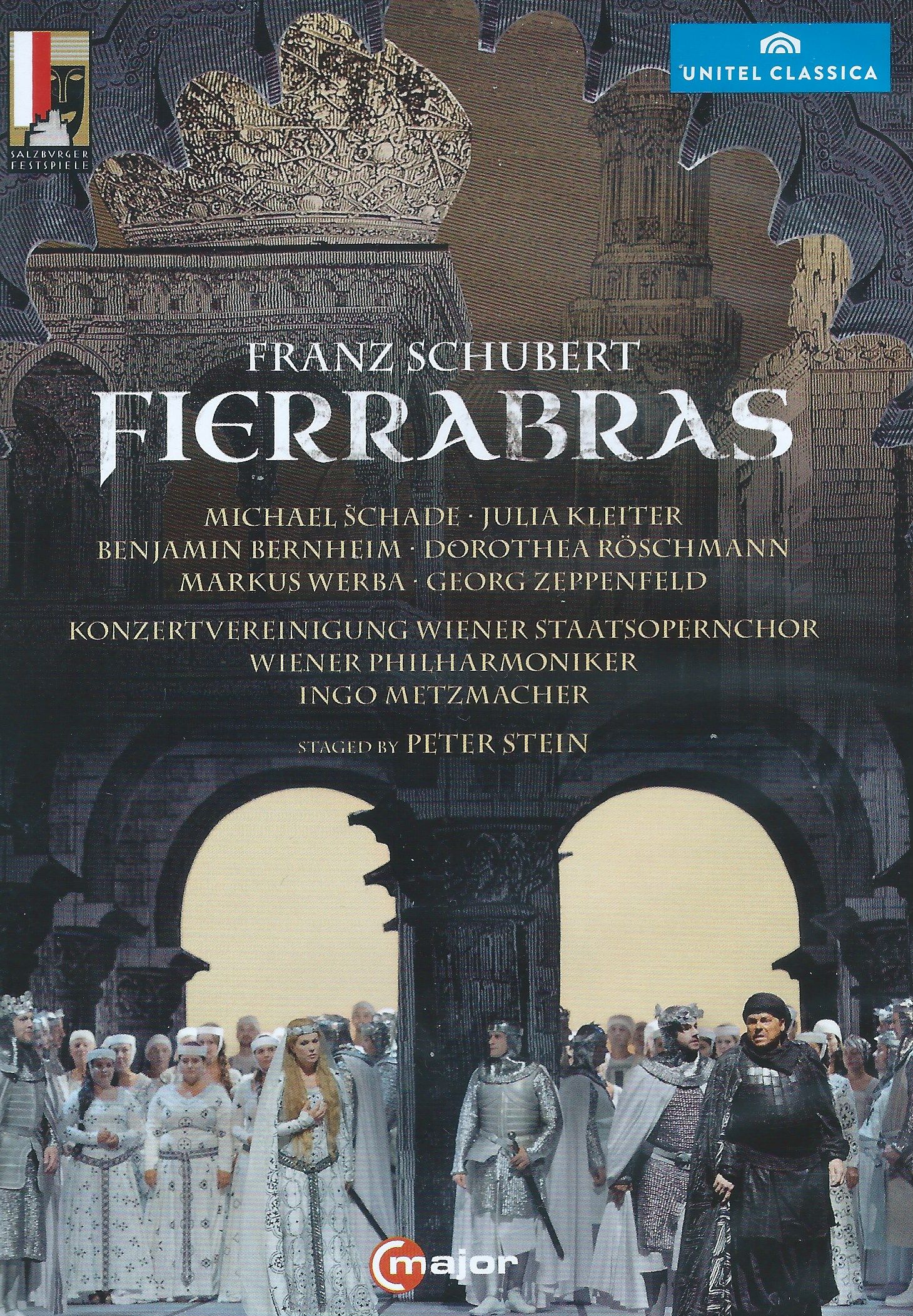
It’s always intrigued me why, if Schubert was such a fine composer of songs (and he was), why don’t we hear his operas? There are quite a few, after all, so why not start with his 1823 piece Fierrabras to a libretto by Joseph Kupelweiser? We’re back in knightly, courtly Moorish times; the whole ethos of the opera reminded me of Grétry’s Richard, Coeur-de-Lion, performed at Versailles last year conducted by Hervé Niquet (you can read my review here and my interview with the eminently approachable – and witty! – Hervé here).
This performance of Fierrabras from the 2014 Salzburg Festival (Haus für Mozart) persuades me more than ever that we need more Schubert opera in our lives. Given Schubert’s natural gift for melody, it was inevitable that the music consistently enchants the ear. The cast is fantastic. Both Julia Kleiter – who made her Covent Garden debut as the Countess Figaro at Covent Garden as recently as June 2019 and is superb as Agathe in the Naxos DVD of Weber Freischütz from La Scala – and Dorothea Roschmann, who surely needs little introduction, are outstanding, as is Michael Schade in the title role.
Schubert transports us the time of conflict between Charlemagne and the Moors (a very long time ago: Charlemagne died in 814 AD, so even earlier than Richard the Lion Heart), a world where names like Eginhard and Maragond are clearly commonplace; Peter Stein’s staging helps take us to this courtly place, knights aplenty, ladies in flowing dresses. Ingo Metzmacher has the Vienna Philharmonic at his disposal, so it is easy to feel spoilt (let’s not forget Claudio Abbado also recorded this piece, so we’re not on an island here).
One of the opera’s most memorable melodies comes in the duet between Eginhard and Emma in the first act (here the splendidly lyric tenor of Benjamin Bernheim and Julia Kleiter – it’s nearly 4 minutes before Kleiter enters, but it’s well worth the wait):
Act I duet
.
… and you can hear how the drama is melded with Schubert’s lyric flow in this duet between Emma and King Karl (the excellent Georg Zeppenfeld):
It’s worth noting that Schubert’s dramatic talents did not come out of nowhere. There are some songs that take on real dramatic momentum, and indeed there is a whole sub-genre called “dramatic Lied”. Here’s Adelwold und Emma, D211, a 25-minute Lied that tells, highly relevantly to today’s post, of a valiant German knight and his love:
The links below include one for the Weber Freischütz. However, the full Naxos Adelwold und Emma disc is currently retailing at over £54 on Amazon so you might want to stick with the YouTube video above!.
In some ways this is a different side to the Schubert we met the other day with the post on two string quartets performed by the Fitzwilliam String Quartet; but the melody and the capacity for drama offer the thread. This Fierrabras remains well worth exploring, and potentially the window to a whole new side of Schubert.









